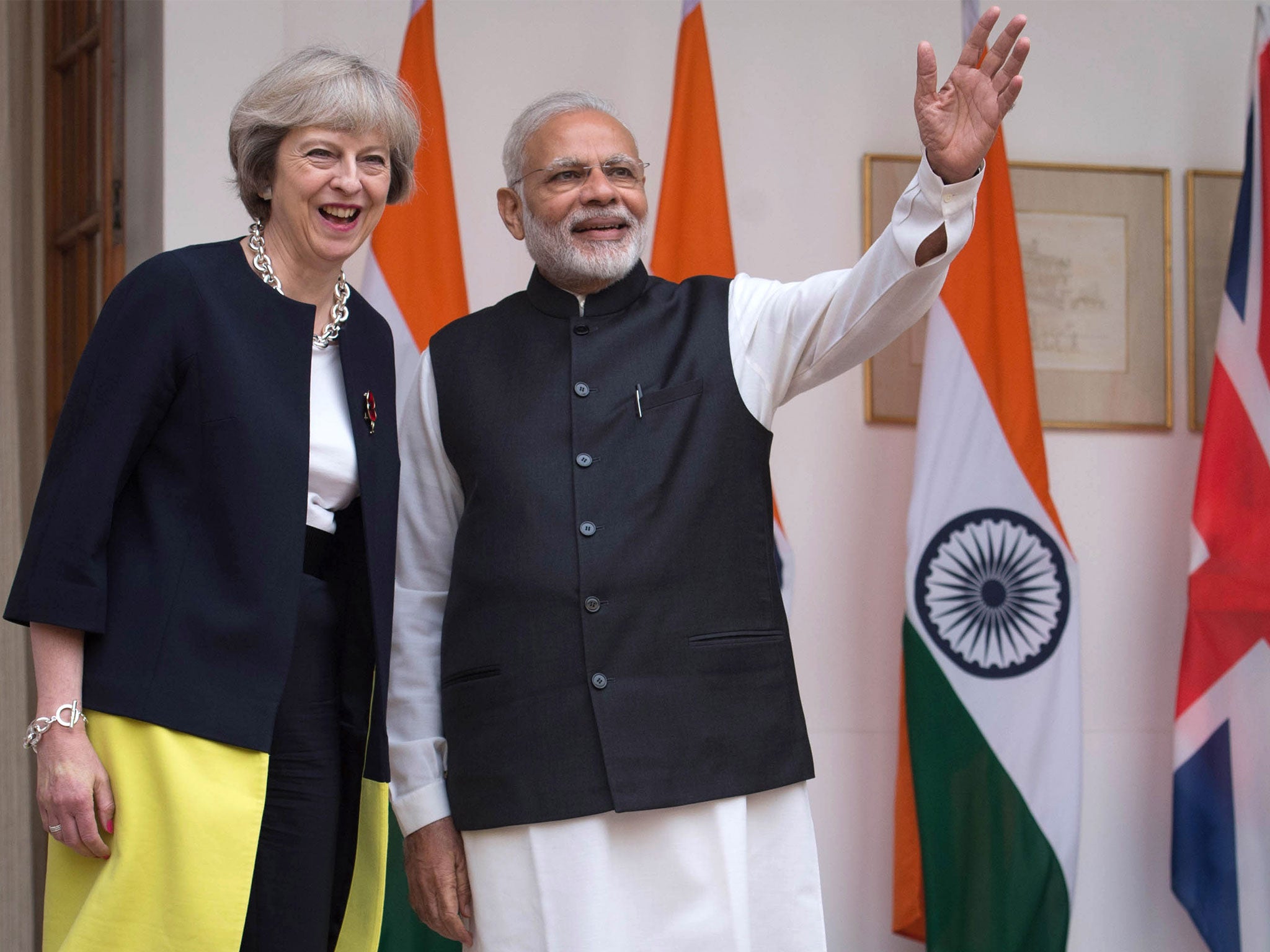The Independent's journalism is supported by our readers. When you purchase through links on our site, we may earn commission.
The Conservatives have stolen the British Indian vote from Labour – here's how
Following the election of Indian Prime Minister Narendra Modi in May 2014, the Conservative government has stepped up its Indian charm offensive


As the 2017 UK general election nears, Labour is facing a probable loss of seats for the fifth consecutive time. It may also suffer further disintegration of its historical relationship with British voters of Indian origin.
The 2015 election saw the Conservatives receive 1m ethnic minority votes for the first time in its electoral history. And those votes came largely at Labour’s expense. A post-election survey by British Future showed the Tories enjoyed an eight percentage point advantage over Labour among Britain’s Hindu and Sikh communities. The Conservatives have 49 per cent popularity among both ethno-religious groups, to Labour’s 41 per cent.
This reported advantage sharply contrasts with the 2010 election figures. A report produced by think-tank Theos after that vote reported that Labour had secured a 13 per cent advantage over the Tories among British Hindus, and were ahead of the Conservatives by 48.5 percentage points among British Sikhs.
The upcoming general election may well mark an all-time low in relations between Labour and British Indian voters. Under the leadership of Jeremy Corbyn, the party is severely disadvantaged among many British Indian voters. Particular pressure points include the economy, welfare, housing, issues surrounding caste and even foreign policy.
Corbyn’s old-fashioned social democratic model of political economy – high taxes funding an all-encompassing welfare state designed for mass wealth redistribution – is unlikely to command much support among aspirational British Indian voters. The reality is that if many had reservations over the interventionist nature of the economic policies promoted under Ed Miliband’s leadership, they are also likely to find the core tenets of Corbynism unpalatable.
Corbyn’s passionate protection of the welfare state is itself a problem for many British Indians. After describing cuts to welfare spending under David Cameron “rotten and indefensible”, Corbyn may have proven himself to be out-of-touch with much of this key demographic.
Out of Britain’s sizeable ethnic minority groups, British Indians are the most likely to work in salaried professions. Research from 2010 also showed the fertility rate within the British Indian community fell below the UK average. And according to the 2011 census, only 31 per cent of Indian women aged 16-64 were economically inactive.

When combining the realities of greater occupational advancement, low fertility rates and relatively high female economic activity, the archetypal British Indian family is comparatively small, self-sufficient and minimally reliant on welfare assistance. So comprehensive welfare commitments are unlikely to appeal to them.
Corbyn’s opposition to the caste system also puts him at odds with those British Hindus and Sikhs who object to politicians intervening on culturally sensitive issues. They have found the Conservatives to be more sympathetic to their concerns.
Following the election of Indian Prime Minister Narendra Modi in May 2014, the Conservative government has stepped up its Indian charm offensive. Former prime minister David Cameron not only invited Modi to address a packed Wembley Stadium on a visit to London, but essentially served as his warm-up act.
The event showed just how popular Modi is among British Indian Hindus. But Corbyn does not share their enthusiasm, tending to side with his critics more often than his supporters. This could help push British Indian voters – particularly Gujarati Hindus – towards the Tories.
Meanwhile, Theresa May continues to emphasise the importance of India as a post-Brexit trading partner.
Whether it’s economic management, welfare, housing, the caste system, or foreign policy towards a Modi-led India, Corbyn is out-of-sync with much of the British Indian population. Labour were once able to rely on the loyalty of British Indians at the ballot box. Times have changed. June 8 could well mark a full Tory takeover of Labour’s Indian estate.
Rakib Ehsan is a Doctoral Researcher at Royal Holloway, University of London, specialising in socio-political attitudes and behaviour within British ethnic minorities
Join our commenting forum
Join thought-provoking conversations, follow other Independent readers and see their replies
Comments
Bookmark popover
Removed from bookmarks